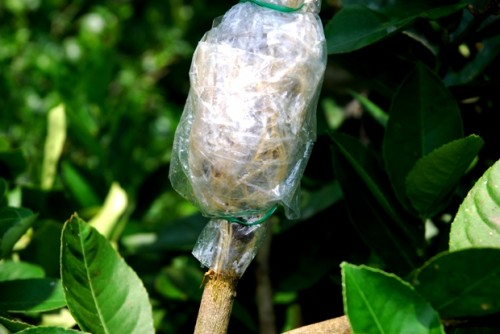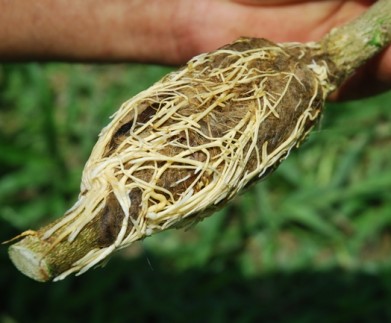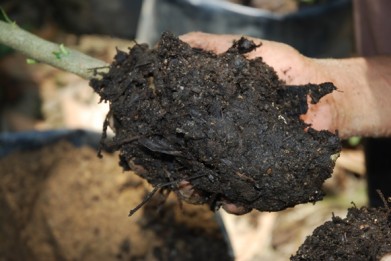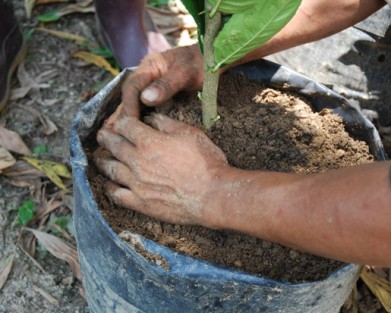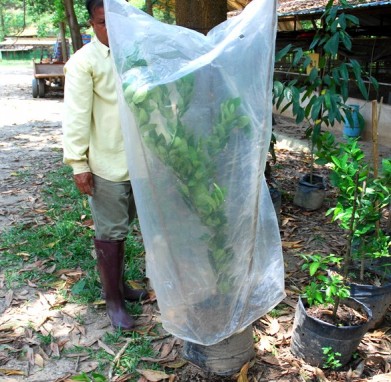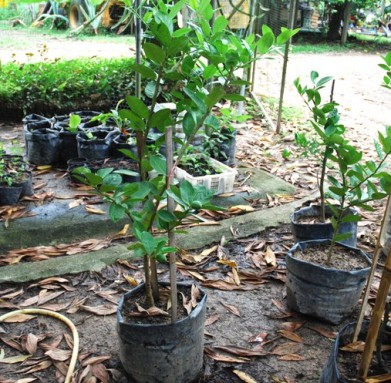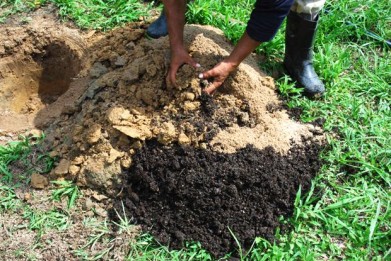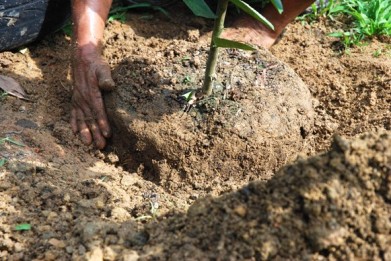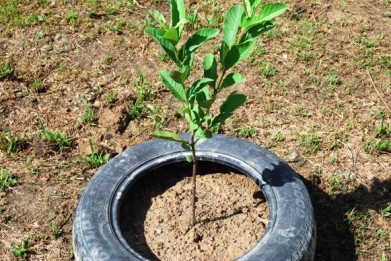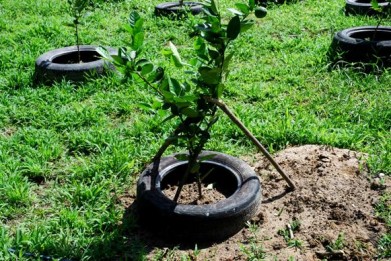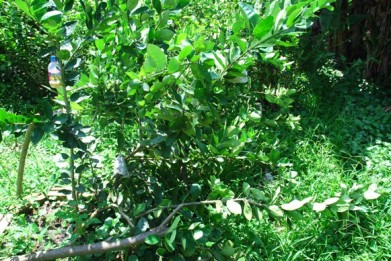Apr 08, 2011
Marcotting II
We generally have good root formation in around 30 to 45 days for lemon trees and other limau-type trees.
Saw off, and dap some iodine on the cut
Wrap vermicast around the root ball
Plant in a polybag with a light, friable and loose soil mix. We like to add some sand and vermicast to our farm soil. Loose, light soil will encourage the roots to grow deeper.
Cover the plant with a plastic bag to prevent drying out. Remove when new leaves and branch shoots are noticeable. Once the new leaves and shoots are established, plant to soil.
The area where we are planting these citruses have heavy laterite soil. We generally dig a hole and then mix the laterite with sand and compost.
We mix the laterite with sand and vermicast or compost
Place the plant half inside the hole
A planted marcotted guava
We generally place an used tire over the spot and top up the soil mix as need be. The tire reduces weeds, and prevent leachate of compost and vermicast.
Support the young tree. Marcotted trees tend to be shallow rooted and care must be taken during windy monsoon seasons.
5 year old marcotted lemon tree falling over after a night of heavy rain and strong winds. Marcotted trees have no tap root so should be supported even when matured in windy zones.
12:37 Posted in Blog | Permalink | Comments (0) | Tags: marcotting, air layering, lemon, organic farming, permaculture








